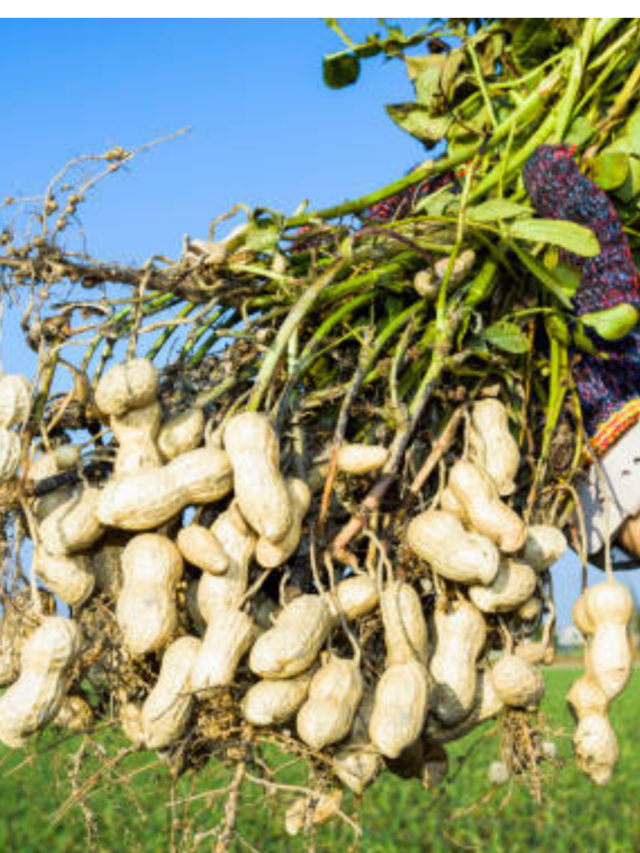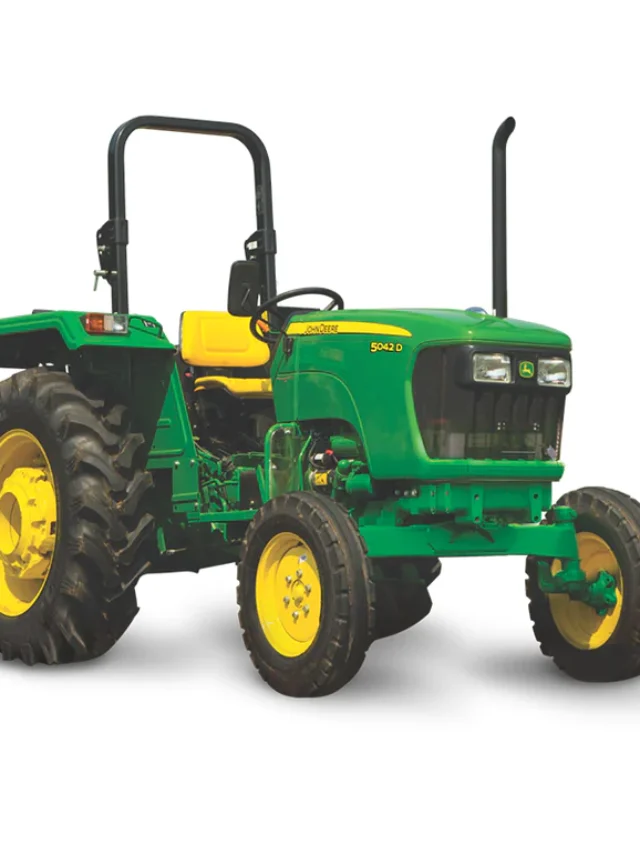It deals with the design, construction, and improvement of farming equipment and machinery. Integrates agricultural engineering technology into farming. For example, it designs new and improved farming tools that work more efficiently. It designs agricultural infrastructure such as water reservoirs, warehouses, dams, and other structures.

It also seeks to find solutions to control pollution on large farms. Some agricultural engineers are developing new types of biofuels from non-food resources such as algae and agricultural waste. Such fuels can replace gasoline economically and sustainably without risking the food supply.
Agricultural engineering importance
Agricultural engineers use their knowledge to solve the problems of farmers and the agro-industry. They work to improve quality and increase farm productivity. Agricultural engineers work for several manufacturing companies that design and supply equipment. Engineers in these companies work in sales, research and development, marketing, advertising, and management.
Agricultural engineering is the process of combining food science, civil engineering, chemical engineering, and electrical, with knowledge of agriculture, the main purpose being to improve the adequacy and suitability of agricultural methods. The agricultural engineering was in enormous scale and industrialization coup.

The field deals with the improvement of farming equipment and machinery, agricultural engineering is the technology of farming and designs new improvements in farming skills or equips it to work properly for the given tasks. The design and construction of an agricultural framework are such that there are warehouses, water reservoirs, dams. It also helps solve pollution control on farms.
Agriculture means “cultivation of land and breeding of animals.” Engineering, on the other hand, means “the formation and building of machinery and equipment for the ease of human beings.” The combine is a branch of agricultural engineering science used for the construction, design, improvement, and construction of tools and machinery for the convenience of people working in the field of agriculture.
An agricultural engineer uses the latest scientific technology to design a new machine that will help farmers do their work more easily in the future. An agricultural engineer works to grow the economy in the agricultural sector by inventing and discovering efficient tools. Remember that agricultural engineering is a very broad field and includes its sub-branches such as soil science, environmental science, plant bioengineering, animal science, etc.
In case you miss this: Agricultural Biotechnology Benefits, and Applications

Agricultural engineering also called agricultural and biosystem engineering, is the field of study and application of engineering sciences and formulates principles for agricultural purposes, including mechanical, civil, electrical, food science, environmental, software, and combines different fields of chemical engineering to improve the efficiency of farms and agribusinesses as well as ensuring the sustainability of natural and renewable resources.
Agricultural engineers work wit
• Production facilities
• Food engineering and agricultural products processing
• Agricultural machinery, equipment, and the design of agricultural structures
• Physical and chemical material properties used in agricultural production
• Power units, harvesters, material handling, and equipment
• Environmental control of poultry, swine, beef, aquaculture, and plants
• Waste management, including animal waste, agricultural residues, and fertilizer flows
• Water management for crop irrigation and livestock production, conservation, and storage
• Using GPS, monitors, remote sensing, and variable rate technology
• Worker safety and comfort
• Performance includes control of vibration, noise, air quality, heating, cooling, etc.
• Sales, service, training, management, planning, market, and product research related to the application and application of technology.
What is the scope of agricultural engineering?
It is a technologically advanced field that offers bright career prospects and opportunities in any country of the world and various fields. Some higher education options for B.Tech graduates in agriculture are M.Tech in Agricultural Engineering, M.Tech in Farm Machinery and Power Engineering, M.Tech in Renewable Energy, Ph.D. in Rural Technology, M.Tech in Crop Production, Ph.D. in Agri-Informatics, M.Sc. in Rural Technology.
Agriculture engineering recruiters
An agriculture engineer has many options to choose when it comes to choosing a work area. These industries or companies are listed below;
Area of specialization in agricultural engineering
In general, agricultural engineering specialization can be divided into six major areas. They are Processing or Post Harvest System Engineering, Farm Power and Machinery Engineering, Soil and Water Engineering, Farm Structure, and Environmental Control Engineering, Forestry, and Wood Product Engineering, and Food Engineering. Other areas that are emerging from specialization are Amenity (Ecological) Engineering, Mechatronics and Robotics, Information and Communication Technology, Renewable Energy, and Environmental Engineering.
Courses in agricultural engineering
There are two courses in Agricultural Engineering, namely at the graduate level, B.Tech in Agricultural Engineering, and a Master’s level, M.Tech in Agricultural Engineering.
A career in agricultural engineering
Most agricultural engineers design and test agricultural implements, machinery, and parts. They design food processing plants and food storage infrastructure. Also, some design housing and environments for livestock. Then, they plan and oversee land reclamation projects on farms. Some are involved in energy projects and carbon sequestration from agricultural waste. Most agricultural engineers (17%) were employed in engineering, architectural and related services. 16% were employed by the government. Another 14% worked in food manufacturing.
13% worked in agriculture, construction and manufacturing. Another 6% were working as educators. Agricultural engineers work indoors and outdoors. They spend time in offices planning and managing projects and inspecting sites in agricultural settings, monitoring equipment, and overseeing maintenance and water management projects. These engineers can also work in laboratories. They can collaborate with others to plan and solve problems. For example, they may work with horticulturists, agronomists, animal scientists, and geneticists.
What do agricultural engineers do?
• Use computer software to design systems, structures., or equipment.
• Modify environmental factors that affect the productivity of animals or crops, such as airflow in a warehouse or field flow samples.
• Check equipment to ensure its safety and reliability.
• Oversee construction and production work.
• Plan and work with clients, contractors, consultants, and other engineers to ensure effective and desired results.
Job opportunities for agricultural engineers

Agricultural engineers work in agriculture, including aquaculture (seafood farming), forestry, and food processing. They work on a variety of projects. For example, some agricultural engineers work to develop climate control systems that increase the comfort and productivity of livestock, while others work to increase storage capacity and refrigeration efficiency. Many agricultural engineers try to come up with better solutions for disposing of animal waste.

People with computer programming skills work to integrate artificial intelligence and geographic systems into agriculture. For example, they work to improve the efficiency of fertilizer application or to automate the harvesting system. As we now know, an agricultural engineer has many roles to play after completing a course.
These roles are as follows;
• Agricultural Engineer
• Plant Physiologist
• Survey Research Agricultural Engineer
• Environmental Control Engineer
• Microbiologist
• Food Supervisor
• Agriculture Inspector
• Agricultural Specialist
• Farm Shop Manager
• Researcher
• Agronomist
• Soil Scientist
• Agricultural Crop Engineer
Types of agricultural engineering
It focuses on the large-impact areas of agriculture. As with most sub-disciplines in engineering, there are specialized disciplines where students can specialize. Below we have noted some of the most common and most progressive.

Agricultural machinery & structural design
Some specific areas of study include the design of agricultural equipment or structures (overlap with mechanical and structural engineering). Significant progress has been made in this area, especially with equipment. There are several mechanical developments by many farming equipment companies with long-row planters and automatic driving and steering agriculture.
Agricultural technology
It is probably one of the most interesting areas of agricultural engineering. As we mentioned earlier, GPS has allowed many technological advances in agriculture. Precision agriculture is probably one of the largest industries that have developed in the last decade. Precision agriculture improves soil performance with limited amounts of chemical use. In addition, it reduces over-spraying and over-seeding to reduce costs and helps to use big data to better understand the best planting time.
Bioengineering
Bioengineering is a fast-growing industry and is a hot topic for many when it comes to food engineering and genetically modified organisms. However, the genetics of different crops using fewer pesticides, resisting pests, or engineering crops growing faster and more efficiently is a growing trend for most countries, especially third world countries. Biotechnology has also evolved, such as the manufacture of pharmaceuticals, such as human insulin for diabetics, and medicines for the treatment of various diseases.
Waste management
Especially with large farming companies, has significant animal waste and chemical flows. There is an overlap with environmental and sustainability engineers, where they work together to create the most environmentally friendly solution while being efficient for the farm.
Agricultural resource management

There is a lot of science and math behind the decision to use the parcel of land. In some places, crop rotation is not as common as it was 50 years ago, but it is important to know how to allocate land and water to reduce the number of chemicals and other resources that farmers need to do, which reduces the cost.
Top colleges/universities in India offering agricultural engineering
• Indian Agricultural Research Institute, New Delhi
• Tamil Nadu Agricultural University, Coimbatore
• Punjab Agricultural University, Ludhiana
• National Dairy Research Institute, Karnal
• Chaudhary Charan Singh Haryana Agricultural University, Hisar
Income of agricultural engineer
The average salary of agricultural engineers is between Rs. 2.5-4.5 lakh per annum.
In case you miss this: Top Agriculture Colleges in Karnataka: List, Government, and Private
Frequently asked questions about agricultural engineering (FAQ)
is agricultural engineering a good career?
They are also involved in improving new technologies in the design and manufacture of agricultural farm machinery, farm structures, rural electricity, biogas, and agricultural products. Agricultural engineers have bright career opportunities, especially in India.
What skills do agricultural engineers need?
Agricultural engineers need aptitude and written communication skills as well as qualifications for science and technology. They rely heavily on their ability to solve problems. Bachelor’s degree in Agricultural or Biological Engineering requires entry-level education.
Who is an agricultural engineer?
Agricultural engineers work in various industries. Agricultural engineers try to solve agricultural problems related to power supply, machinery performance, use of infrastructure and facilities, pollution and environmental problems, and storage and processing of agricultural products.









